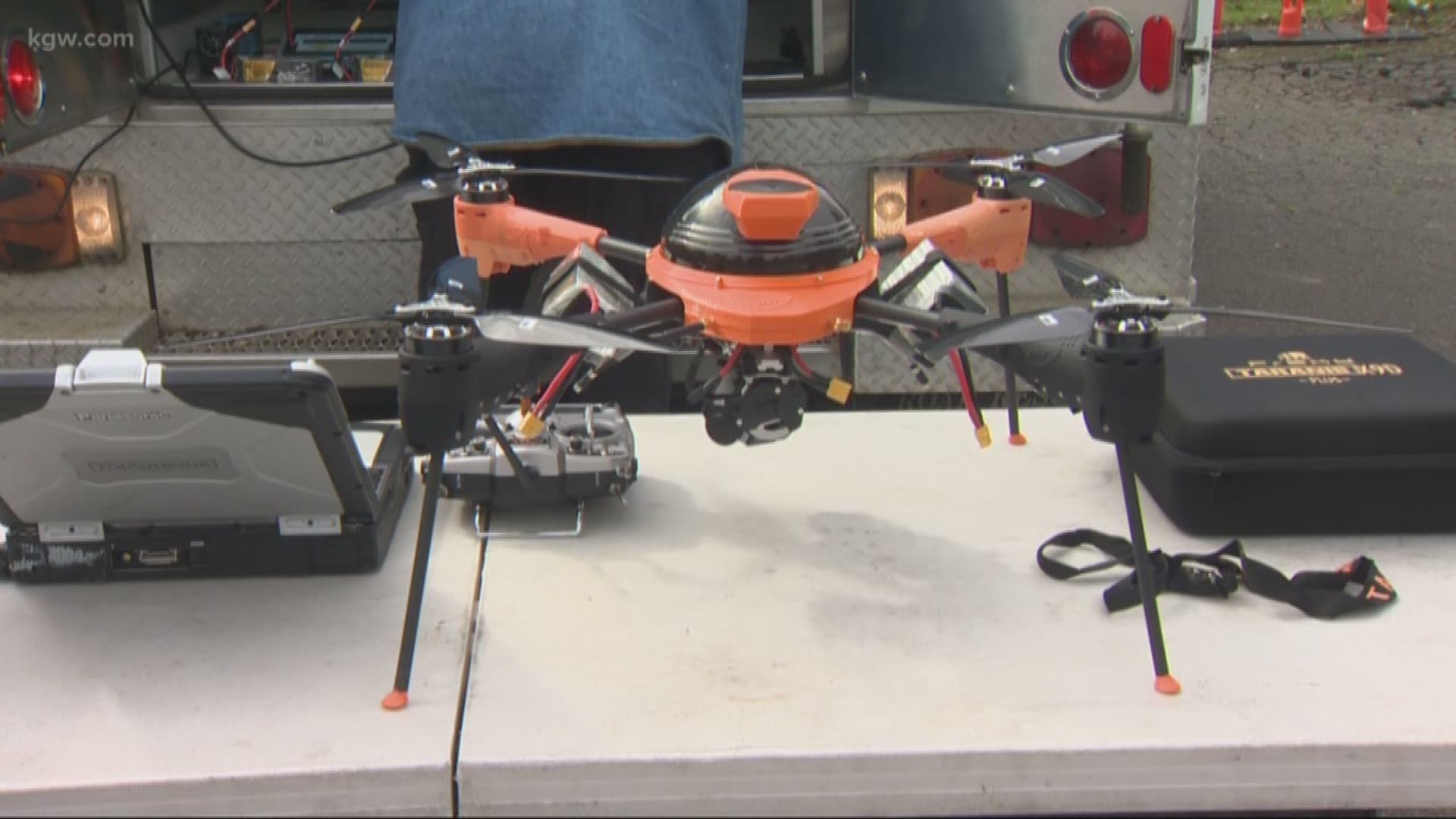PORTLAND, Ore. -- Mountain Wave Search and Rescue has a new, technologically advanced drone that will make a huge difference when people need help getting out of dangerous situations.
“We wanted to have something that would fly in more extreme conditions. We wanted to have better cameras, thermal imaging, and we wanted to be able to drop a payload if we needed to,” said Russell Gubele, the co-founder of Mountain Wave Search and Rescue.
That's exactly what Mountain Wave SAR got when it partnered with Aerial Technology International. The drone is custom built.
“I geared this aircraft to basically be able to handle the heavier loads, to handle the flying conditions of faster winds, hotter temperatures or colder temperatures. Where some drones won't start up and fly, this guy will,” said Lawrence Dennis, the co-founder of Aerial Technology International who also helps with Mountain Wave SAR.
The search and rescue team already has a drone, but Dennis said the new drone has increased capabilities over the standard box drone. He said the ATI drone works with many more components.
“As technology has been advancing so quickly, new sensors, new things come out that would work well on a drone don’t necessarily plug and play with those box copters any longer,” said Dennis. “Your drone is basically a wall ornament once it runs out of its life.”
That’s why he said Mountain Wave’s new drone is so beneficial. New sensors, cameras, and gadgets can be easily added. That means the drone will not need to be replaced as new technology becomes available.
There are also small details, like a hook on the bottom of the drone, that will help people survive if rescuers can't immediately get to them.
“We can run lines. We can run rope. We can run a package...first aid kit, a cellphone,” Dennis said.
In addition, it can communicate with multiple devices. It can send video, or thermal imaging from the air all the way to a command center, wherever that command might be.
“So these guys can see basically what the drone is doing and not be in the vicinity of the operator of the drone,” said Dennis.
Typically, a drone operator will see video through a controller or phone, but those images aren’t sent elsewhere for other to view in real time.
The drone uses an HD Sony camera with optical zoom.
“It definitely gives us a much better picture in the air,” Dennis said.
He said the base cost of the drone itself is about $6,000, but with all the bells and whistles most people spend between $15,000 and $20,000.
Gubele said Mountain Wave operates statewide and will be happy to help other agencies. He said his team usually responds to about 200 call a year and the drone, with its myriad of capabilities, could be the difference between life and death in some situations.
Mountain Wave Search and Rescue staff will be training on it for the next month or so.
Grant money from the Clackamas County Search and Rescue team paid for the new drone.

